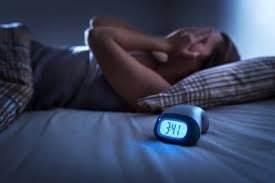Insomnia is a common sleep disorder characterized by difficulty falling asleep, staying asleep, or getting restful sleep. It can affect individuals of all ages and has a significant impact on overall health and quality of life. Understanding the different types of insomnia, their causes, symptoms, and potential solutions is crucial for effectively managing and treating this condition.
Types of Insomnia
Insomnia can be broadly categorized into several types based on its duration and underlying causes. The primary types are:
Acute Insomnia:
Also known as short-term insomnia, acute insomnia lasts for a few days to a few weeks. It is often triggered by temporary stressors, such as a demanding work project, an emotional event, or jet lag. Acute insomnia usually resolves once the stressor is removed or managed.
Chronic Insomnia:
Chronic insomnia persists for at least three nights a week for three months or longer. This type of insomnia is often associated with underlying health conditions, psychological disorders, or lifestyle factors. Chronic insomnia can significantly impact daily functioning and overall well-being.
Transient Insomnia:
This type of insomnia lasts for less than a week and is usually caused by temporary disruptions in sleep patterns, such as traveling across time zones or experiencing a short-term stressor. Transient insomnia typically resolves on its own once the disruption is addressed.
Onset Insomnia:
Individuals with onset insomnia have difficulty falling asleep at the beginning of the night. They may lie awake for extended periods before eventually falling asleep. This type of insomnia can be related to anxiety, stress, or overstimulation before bedtime.
Maintenance Insomnia:
Maintenance insomnia involves difficulty staying asleep throughout the night. Individuals may wake up frequently and have trouble falling back asleep. This type of insomnia can be associated with medical conditions, such as sleep apnea, or psychological factors like anxiety and depression.
Early Morning Awakening Insomnia:
Individuals with early morning awakening insomnia wake up earlier than desired and are unable to return to sleep. This type of insomnia can lead to fatigue and reduced functioning throughout the day. It is often linked to depression or chronic stress.
Causes of Insomnia
The causes of insomnia can be multifaceted, involving a combination of physiological, psychological, and environmental factors. Some common causes include:
Stress and Anxiety:
High levels of stress and anxiety can lead to difficulties falling and staying asleep. Worries about work, relationships, or financial issues can keep the mind active and prevent relaxation.
Depression:
Depression often disrupts sleep patterns, leading to both insomnia and excessive sleepiness. Early morning awakening and difficulty falling asleep are common in individuals with depression.
Medical Conditions:
Certain medical conditions, such as chronic pain, asthma, gastroesophageal reflux disease (GERD), and restless legs syndrome, can interfere with sleep. Additionally, medications used to treat these conditions may contribute to insomnia.
Lifestyle Factors:
Poor sleep hygiene, such as irregular sleep schedules, excessive caffeine or alcohol consumption, and lack of physical activity, can contribute to insomnia. Stimulants and certain behaviors, like using electronic devices before bed, can also disrupt sleep.
Psychiatric Disorders:
Conditions such as bipolar disorder, schizophrenia, and post-traumatic stress disorder (PTSD) can affect sleep patterns and contribute to insomnia.
Hormonal Changes:
Hormonal fluctuations, such as those occurring during menopause or pregnancy, can impact sleep patterns and contribute to insomnia.
Environmental Factors:
Noise, light, and uncomfortable sleeping conditions can disrupt sleep. An environment that is too hot or too cold, or a bed that is uncomfortable, can contribute to difficulty falling and staying asleep.
Symptoms of Insomnia
The symptoms of insomnia can vary depending on the type and severity of the condition. Common symptoms include:
Difficulty Falling Asleep:
Individuals with onset insomnia may lie awake for extended periods before falling asleep.
Frequent Night Wakings:
People with maintenance insomnia may wake up multiple times throughout the night and have trouble returning to sleep.
Early Morning Awakening:
Those with early morning awakening insomnia wake up earlier than desired and struggle to fall back asleep.
Daytime Fatigue:
Insomnia often leads to daytime fatigue, irritability, difficulty concentrating, and reduced productivity.
Mood Disturbances:
Insomnia can contribute to mood disturbances such as irritability, anxiety, and depression.
Impaired Cognitive Function:
Difficulty with memory, attention, and problem-solving can result from poor sleep quality.
Solutions and Treatment Options
Addressing insomnia involves identifying and managing the underlying causes while implementing effective strategies for improving sleep quality. Some potential solutions include:
Cognitive Behavioral Therapy for Insomnia (CBT-I):
CBT-I is a structured program that helps individuals identify and change behaviors and thought patterns that contribute to insomnia. It is considered one of the most effective treatments for chronic insomnia.
Sleep Hygiene Practices:
Improving sleep hygiene involves adopting healthy sleep habits, such as maintaining a consistent sleep schedule, creating a relaxing bedtime routine, and optimizing the sleep environment. Avoiding stimulants like caffeine and electronic devices before bed can also help.
Medication:
In some cases, medication may be prescribed to help manage insomnia. Sleep aids, such as benzodiazepines or non-benzodiazepine sleep medications, can provide short-term relief. However, these should be used with caution and under the guidance of a healthcare professional due to the potential for dependence and side effects.
Stress Management:
Techniques such as relaxation exercises, mindfulness, meditation, and yoga can help reduce stress and promote better sleep.
Addressing Underlying Conditions:
Treating any underlying medical or psychiatric conditions contributing to Insomnia And Their Details is essential. This may involve working with healthcare providers to manage chronic pain, depression, or other conditions.
Lifestyle Changes:
Incorporating regular physical activity, reducing alcohol consumption, and managing caffeine intake can improve sleep quality. Establishing a regular sleep schedule and creating a comfortable sleep environment are also important.
Sleep Restriction Therapy:
This therapy involves limiting the amount of time spent in bed to improve sleep efficiency. Gradually increasing time in bed as sleep improves can help regulate sleep patterns.
In Summary
Insomnia is a complex sleep disorder with various types, causes, and symptoms. Understanding the specific type of insomnia one is experiencing can help in selecting the most effective treatment strategies. By addressing underlying causes, adopting healthy sleep habits, and seeking appropriate professional help, individuals can improve their sleep quality and overall well-being. If insomnia persists or significantly impacts daily life, it is important to consult with a healthcare provider to develop a comprehensive treatment plan tailored to individual needs.














































